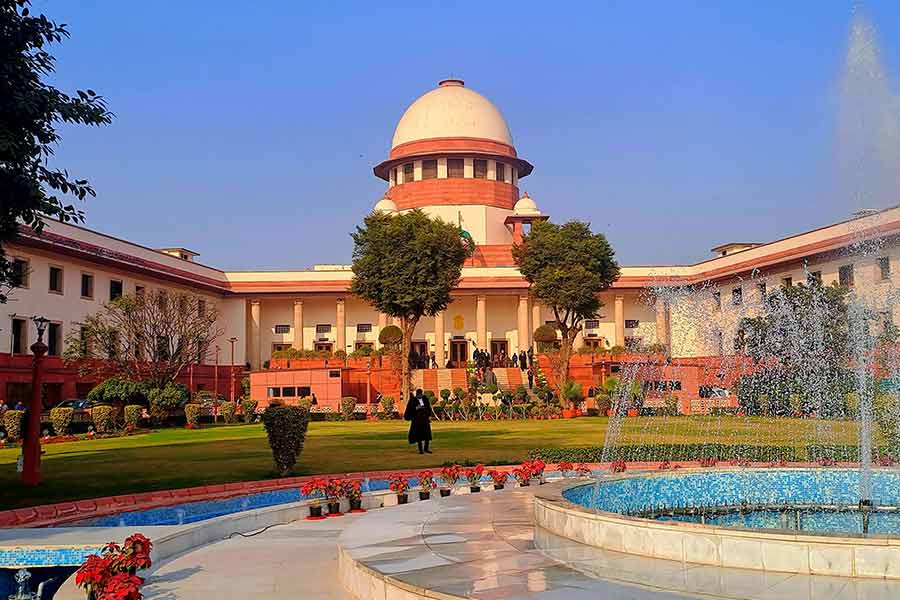Terming the reference by a two-judge bench to a larger one over the minority status issue of Aligarh Muslim University as "bad in law", Supreme Court Justice Surya Kant said it undermined the authority of the chief justice of India as the master of the roster.
A two-judge bench of the top court in 1981 questioned the correctness of the 1967 verdict holding Aligarh Muslim University not to be a minority institution since it was created by a central law and referred the issue to a larger bench for decision.
A five-judge Constitution bench had delivered the 1967 verdict in the S Azeez Basha v. Union of India case.
Justice Kant said the 1981 reference to a seven-judge bench for the reconsideration of the decision in Azeez Basha case was "bad in law and ought to be set aside".
While referring to the dictum of another Constitution bench, he said "a two-judge bench has no authority whatsoever to doubt or disagree with a judgement of the larger bench" and directly refer it to a bench with numerically greater strength.
"The reference by the two-judge bench in Anjuman (in 1981) is nothing but a challenge to the authority of the chief justice of India being the master of the roster and in derogation of the special powers enjoyed upon under Article 145 of the Constitution...," Justice Kant said, adding the reference was not maintainable.
Justice Kant was part of a seven-judge Constitution bench, which by a 4:3 majority verdict, overruled the 1967 judgment.
The majority verdict, authored by Chief Justice D Y Chandrachud, said a regular bench will adjudicate the issue concerning AMU's minority status.
In his 102-page separate opinion, Justice Kant said the two-judge bench in 1981 had specifically stated that the larger bench reviewing the Azeez Basha verdict should comprise seven judges.
"Such a reference, to our mind, is not consistent with the established norms of judicial propriety," he said.
Justice Kant, therefore, was of the opinion that the chief justice of India alone, as the custodian of the authority, determine the composition of benches and place a matter before any bench he deemed appropriate, albeit sans a reference.
He said the two-judge bench had not only referred the matter but also specified the numerical strength of the bench it would be referred to, further directing the matter to be placed before the chief justice for just notifying the composition of the seven-judge bench.
"With utmost respect at our command, we do not appreciate as to how a two-judge bench could dictate its viewpoint to the chief justice of India. This, to our mind, effectively impaired the chief justice's authority as the master of the roster," Justice Kant said.
He said allowing such a practice would enable benches of lesser strength, such as a two-judge bench, to undermine the decisions of larger benches.
"This would also place the chief justice in an untenable position, who would be bound by a judicial order while acting in an administrative role, leading to procedural complications and embarrassment," he noted.
He said there was no substantial difference between 'doubting' or 'disagreeing' with a judgement.
"That being so, the reference by a two-judge bench in Anjuman doubting the correctness of the five-judge bench in Azeez Basha and referring it to a seven-judge bench suffers from multiple illegalities, including judicial impropriety," Justice Kant said.
He said the minority institutions established in the pre-Constitution era were also entitled to protection conferred by Article 30 of the Constitution.
Article 30 deals with the right of minorities to establish and administer educational institutions.
"In order to seek protection under Article 30 of our Constitution, the minority institution must satisfy the conjunctive test, namely that it was established by a minority community and has been/is being administered by such a community," said Justice Kant.
Except for the headline, this story has not been edited by The Telegraph Online staff and has been published from a syndicated feed.










